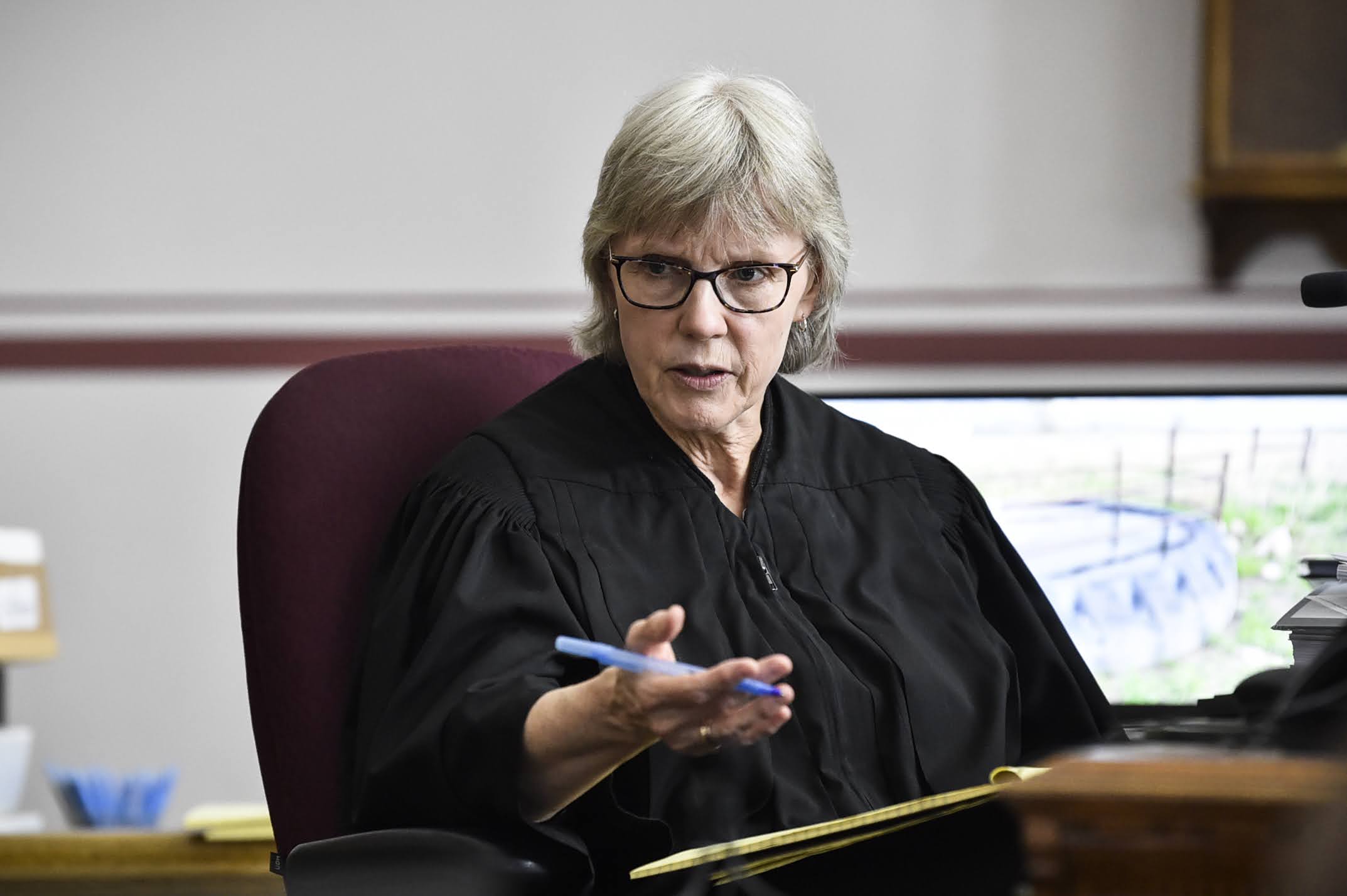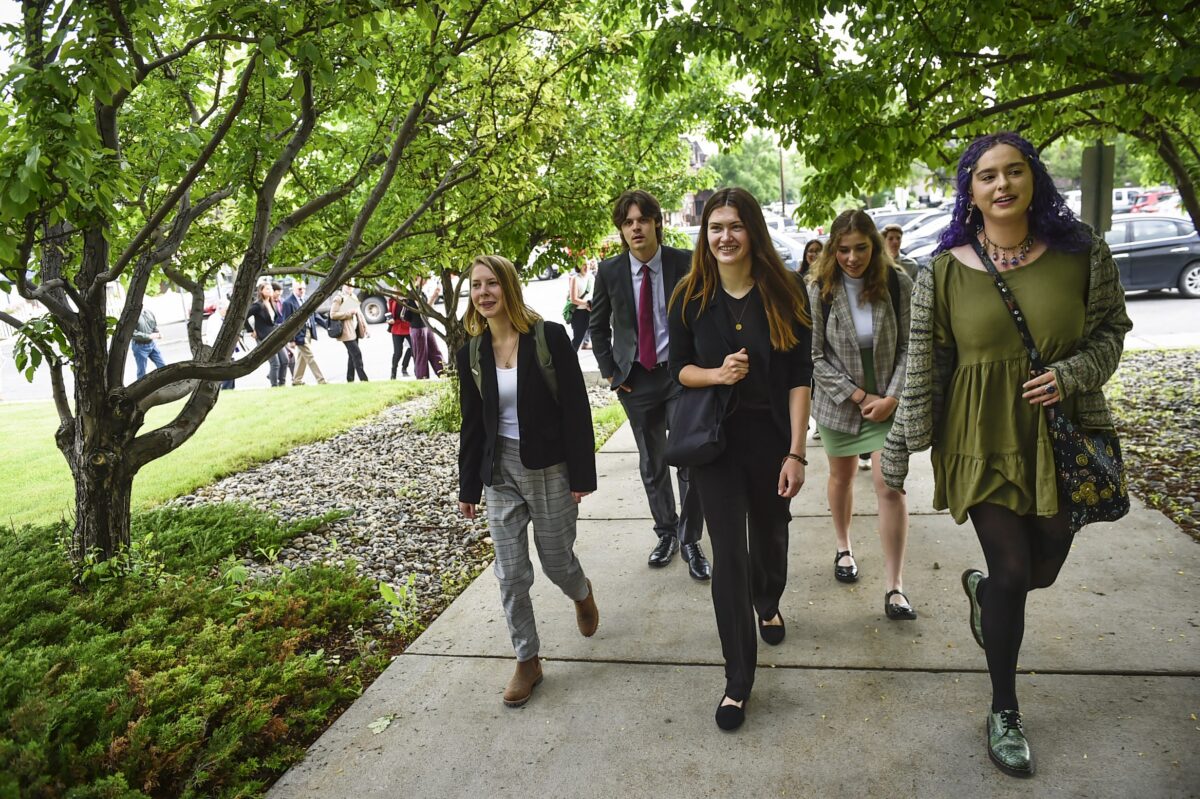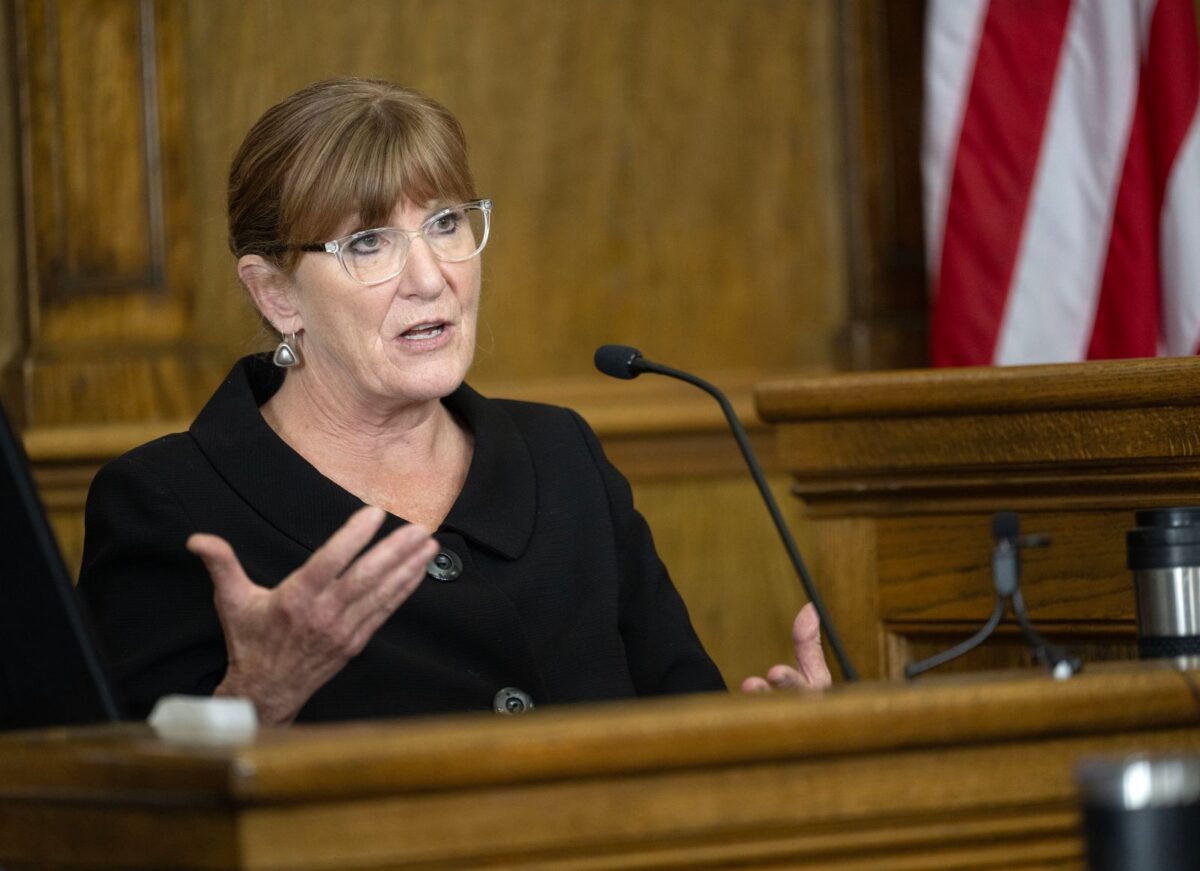Public Calls on DEQ to Abide by Held Decision, Analyze Impacts to Climate Change
The Montana Department of Environmental Quality has held three listening sessions in an effort to review implementation of Montana Environmental Policy Act
By Micah Drew
The Montana Department of Environmental Quality (DEQ) has held a series of listening sessions across the state to collect public input on how the agency implements the Montana Environmental Policy Act (MEPA). The policy review comes two months after a Helena district court judge ordered the state to evaluate greenhouse gas emissions and climate change risks during the permitting process, a result of the Held v. Montana lawsuit.
The DEQ hosted in-person listening sessions in Billings, Helena and Missoula, with an online session planned for Nov. 1, to solicit feedback not just on how MEPA should consider climate change risks, but how the regulatory framework “should be modernized to reflect the experiences of the past fifty years and the demands of today’s contemporary society.”
“MEPA is a public process,” Rebecca Harbage, DEQ’s public policy director said at the start of the listening session in Missoula on Oct. 19. “Comments are so valuable to what we do under MEPA. Without the knowledge of folks who are living in the area near a project site, we don’t necessarily know exactly what’s going on in that site.”
First introduced in the 1970s, MEPA has been a look-before-you-leap process for agencies to undergo when permitting projects that require environmental review. The process includes conducting environmental assessments and has an expanded public right to participate in this process.
While state agencies previously considered greenhouse gas emissions and climate impacts when reviewing fossil fuel projects, the 2011 Montana Legislature amended MEPA to restrict agencies from considering impacts that are “regional, national or global in nature.” The 2023 legislature further amended the law to exclude analysis of greenhouse gas emissions and climate change specifically.

The 2011 and 2023 amendments were at the heart of Held v. Montana, which saw 15 youth plaintiffs sue the state on the grounds that the MEPA limitations violated their constitutional right to a clean and healthful environment. Both provisions were struck down as unconstitutional by District Court Judge Kathy Seeley in her Held opinion, but state agencies have been slow to change their procedural tracks. Many members of the public were quick to call out DEQ for dragging its feet.
“I’m a parent of two boys. I’m really proud and grateful of the youth plaintiffs who brought the Held case before our state for speaking for my kids and defending their right to a clean and healthful environment. But as a parent of toddlers, I know stall tactics when I see them,” said Abbey Huseth, outreach director for Climate Smart Missoula. “It seems like that’s what’s happening here. I know DEQ has the ability to analyze climate impacts and has the tools, but they haven’t done that. As a parent, I also know stalling doesn’t change reality. It’s always best to change course, take responsibility and do the right thing.”
Public comment in person and online during the Missoula and Helena listening session was overwhelmingly in favor of more action by DEQ to incorporate climate impacts and greenhouse gas analysis into the MEPA process; however, some industry lobbyists expressed concerns that the MEPA process is already burdensome. In Helena a lobbyist for Northwestern Energy, David Hoffman, said that uncertainty about the regulatory role of the statute could stifle infrastructure development.
In Missoula, Julia Altemus, representing the Montana Wood Products Association, said MEPA isn’t equipped with the regulatory framework to address some of the broader climate concerns raised at the listening session.
“It’s a look before you leap for sure, but MEPA does not control or set regulations for any land use or resource use,” Altemus said. “I do believe that it’s really important to keep the public involved early and often — they often can bring information to bear that the agency will take into consideration as it is making its decisions, but in the end, the agency will have to make a decision because MEPA is just the process for the public to be involved.”

Other commenters took issue with that characterization, including Anne Hedges, director of the Montana Environmental Information Center. Hedges served as an expert witness for the plaintiffs during the Held trial.
“MEPA may be a process, but it’s a process that implements our constitutional right to a clean and healthful environment,” Hedges said. “DEQ admits it does not have the right to write laws, it only follows the direction that it is given in the laws as they are written or the laws as they are interpreted by the court.”
“The court has interpreted the law. DEQ doesn’t have the right to go streamline the law. DEQ doesn’t have the right to go modernize the law. DEQ only has the right to comply with the held decision and what the court mandated you do, which is follow the law and analyze climate impacts,” Hedges continued. “Not next year, not two years from now, but last month.”
George Harris, the executive director of the Montana Coal Council, noted that as the state appealed the Held decision to the Supreme Court and requested clarification on the ruling, changing the law was premature. While the order invalidates the prohibition of considering climate change, he said, it does not command DEQ to consider greenhouse gas emissions or climate change in every project.
Hedges remained firm that the time for action is long overdue.
“So many of the people who have shown up at these hearings both tonight and in Helena and in Billings have been to Helena so many many times to talk about climate change, their concerns and their desire for the state to do something about it,” Hedges said. “They’ve asked the legislature, they’ve asked DEQ and we’re back here having the same people ask you to do your job.”
The DEQ will hold one more listening session online on Nov. 1 from 3 p.m. to 5 p.m. with pre-registration required. Written comments will be accepted until Dec. 1, and can be submitted here.